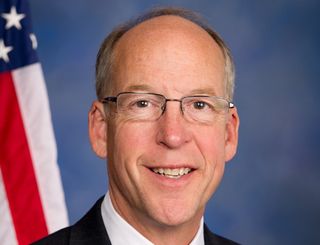Walden Slams FCC in Hearing Opening Statement

If the opening statement of House Communications Subcommittee Chairman Greg Walden (R-Ore.) is any indication, FCC chairman Tom Wheeler can expect more tough questioning at the subcommittee's oversight hearing Thursday (March 19).
Walden said he does not believe the FCC is producing "high-caliber" policymaking, and has instead "devolved into a place where statutory obligations are left to languish in favor of scoring political points," and is too often overstepping its authority.
He described the Title II decision making process as "mired in procedural failures" and driven by the White House behind the scenes. Republicans had asked Wheeler to use his discretion to publish the text of the open Internet draft before the Feb. 26 vote. Wheeler had declined, saying that it was not regular order and could adversely impact the deliberative process that produces the eventual final language. He also has said he pivoted toward using Title II independently and not under pressure from the President's very public statement urging him to do so.
Walden said his concerns went beyond that proceeding to the FCC's use of delegated authority to make decisions at the bureau level rather then at the commissioner level, which the Republican commissioners have suggested constitutes bypassing them and their input. Walden said that an "excessive number" of proceedings remain unresolved while the FCC focuses on expanding "regulatory reach."
Walden said he thought the FCC's regulatory overreach included being the arbiter of the use of personal information, deciding how states could spend their tax dollars — the FCC has recently preempted broadband laws in two states — and "wresting control of content from creators and mandate its presentation on the Internet." The FCC has proposed giving linear over-the-top video providers the same program access rights as MVPDs.
"A properly functioning commission doesn’t work behind closed doors with the president to bypass the administrative process and a properly functioning commission doesn’t make decisions based on the number of click-bait emails that interest groups can generate. A properly functioning commission focuses on law and facts to generate thoughtful and legally sound analysis rather than being carried away by politically generated populist furor," he said.
Also flash points with the chairman are the FCC's eventually aborted attempt to conduct a survey of newsroom editorial decisionmaking (as a way to assess community information needs), its grant of a bidding credit waiver to Grain Management, "excessive and unfounded" merger conditions and more.
Broadcasting & Cable Newsletter
The smarter way to stay on top of broadcasting and cable industry. Sign up below
Contributing editor John Eggerton has been an editor and/or writer on media regulation, legislation and policy for over four decades, including covering the FCC, FTC, Congress, the major media trade associations, and the federal courts. In addition to Multichannel News and Broadcasting + Cable, his work has appeared in Radio World, TV Technology, TV Fax, This Week in Consumer Electronics, Variety and the Encyclopedia Britannica.

